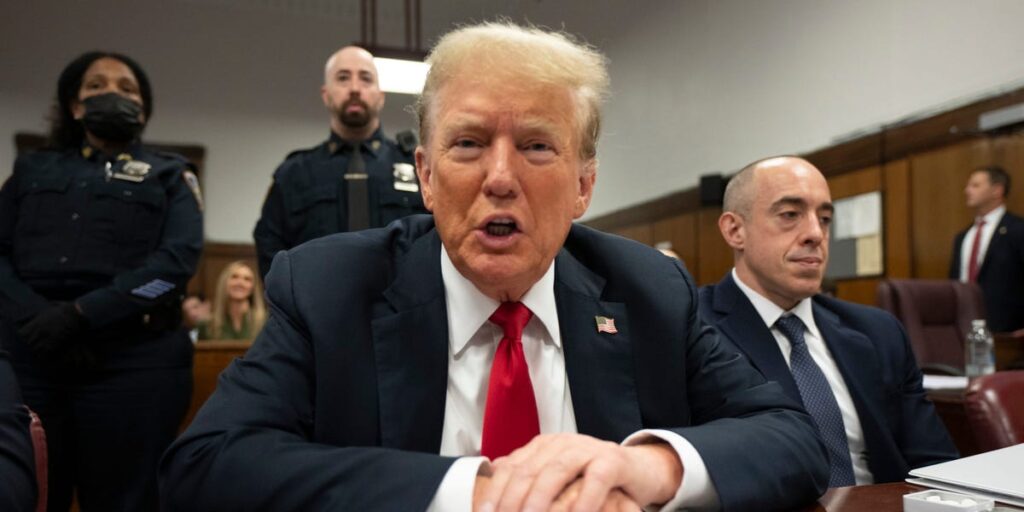- Donald Trump’s sentencing in his New York hush-money case has been officially put off.
- The sentencing in the criminal case was scheduled for November 26.
- The judge overseeing the case also granted Trump’s request to file a motion to dismiss.
President-elect Donald Trump’s scheduled sentencing in his New York criminal case will not move forward next week, a Manhattan judge ruled on Friday.
The sentencing in the former and future president’s hush-money case had been on the calendar for November 26.
New York Supreme Court Justice Juan Merchan granted a stay of the sentencing in his ruling as well as Trump’s request to file a motion to dismiss the case.
Merchan ordered that Trump’s motion is due by December 2, and prosecutors should respond by December 9.
“In a decisive win for President Trump, the hoax Manhattan Case is now fully stayed and sentencing is adjourned,” Steven Cheung, Trump spokesperson and incoming White House communications director, told Business Insider.
“President Trump won a landslide victory as the American People have issued a mandate to return him to office and dispose of all remnants of the Witch Hunt cases,” he added. “All of the sham lawfare attacks against President Trump are now destroyed and we are focused on Making America Great Again.”
Trump was convicted by a Manhattan jury in May on 34 felony counts of falsifying business records to cover up a $130,000 hush-money payment to the adult film actor Stormy Daniels.
Since Trump’s victory in the 2024 presidential election, his sentencing date had remained on hold, with his lawyers arguing for a dismissal.
In a court filing last week, Manhattan District Attorney Alvin Bragg agreed to delay Trump’s sentencing, but made it clear that his office would fight to keep the case alive.
Bragg wrote in the court filing to the judge that one “non-dismissal option” would be to defer the sentencing “until after the end of Defendant’s upcoming presidential term.”
“The People believe that the Court should set a motion schedule for Defendant’s forthcoming motion to dismiss, which the People intend to oppose,” read the filing, adding, “The People deeply respect the Office of the President, are mindful of the demands and obligations of the presidency, and acknowledge that Defendant’s inauguration will raise unprecedented legal questions.”


